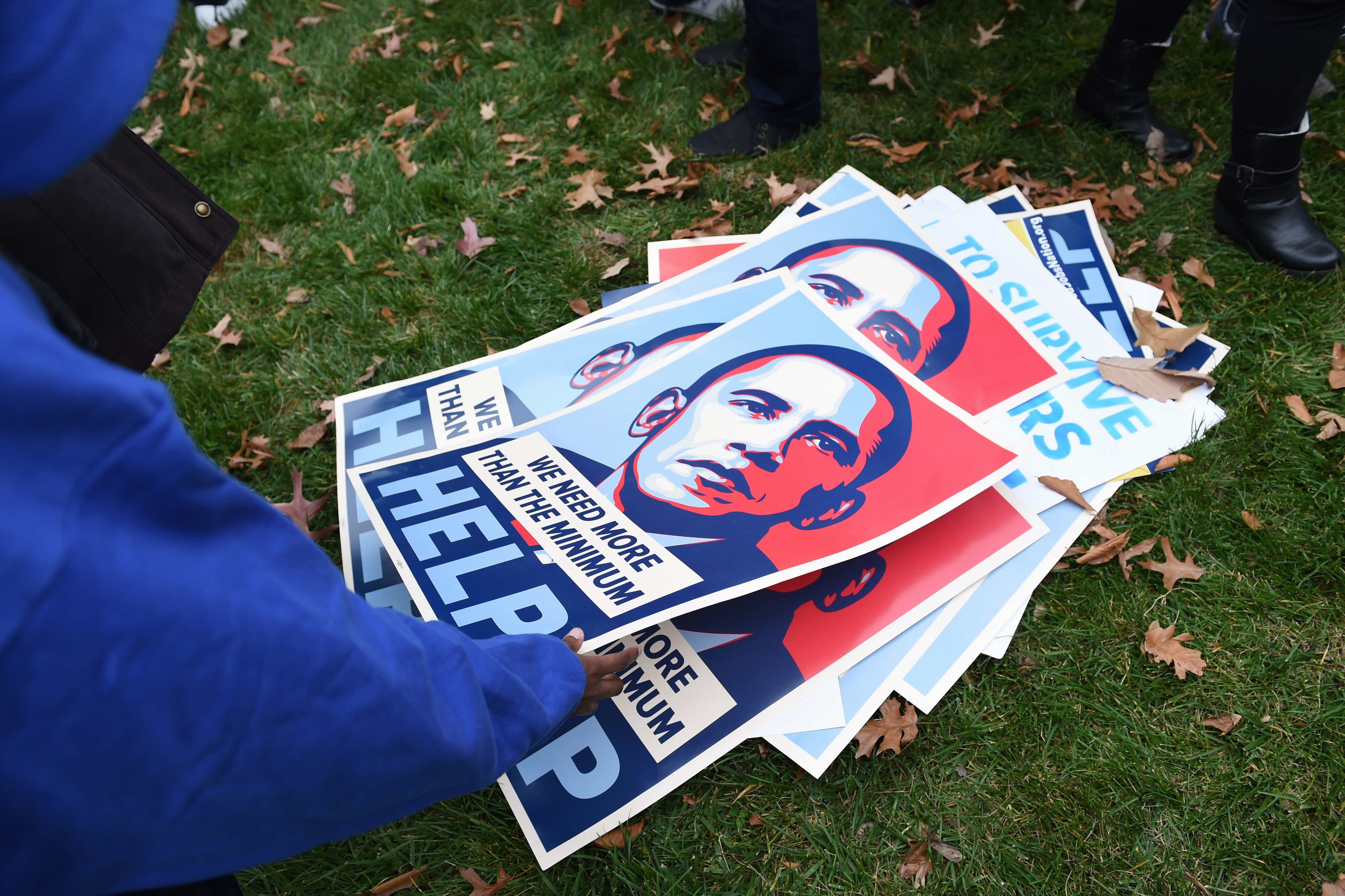Welcome back to What We’re Reading, where we share must-read articles about poverty in America that grapple with critical issues, inspire us to action, challenge us, and push us to see both problems and solutions from new angles.
I Tried to Live on the Minimum Wage for a Week, by Ted Strickland (Politico)
Washington is in a bubble that keeps our representatives away from the experiences of those they actually represent. We need to understand the challenges faced by Americans who are being left behind in our economy. That’s why I joined members of Congress and dozens of organizations in taking the Live the Wage challenge […] and asking those in Congress to actually try living on the minimum wage for a week before opposing an increase that would help millions of Americans who currently live in poverty.
Former Ohio Governor Ted Strickland describes his past week participating in the Live the Wage Challenge, calling attention to the fact that it’s been 5 years since the federal minimum wage was last raised to $7.25/hour. Spoiler alert: $77 per week is not enough to live on. Strickland reminds us that a lot can change in five years, like gas prices. On average, it costs $13.20 more per week to fill the tank than it did in 2009, which makes a sizable dent in a minimum wage budget. As Strickland recounts his struggles—from skipping meals, to getting sick, to eventually running out of money—we can’t help but think that we’d see faster progress if more policymakers stepped up to the plate and “lived the wage.” Want to hear more about Strickland’s experience? Catch him on Hardball with Chris Matthews.
Why “Can’t Make Ends Meet” Trumps “Poverty,” by Karin Kamp (Moyers & Company)
First, Americans who are struggling do not see themselves in abstract language like “the poor” or “poverty.” This is partly because such language is seen as quite pejorative in America. To be poor is to have failed in pursuit of the American Dream. In too many ways, people who are poor are reviled. The first thing we need to do is stop blaming people and start talking about their real lives. Second, we need to stop talking about the economy in ways that make it seem like the weather. The economy is a result of the rules we create and the choices we make.
What if anti-poverty advocates are using the wrong words? Kamp interviews Deepak Bhargava, Executive Director of the Center for Community Change, which recently performed “the most robust scan available of attitudes toward poverty” by surveying 700 Americans living below 200% of the poverty line. The results? Many people living in poverty ignore political debates that impact their lives because they do not identify with the language used. Interestingly, many social movements gain power by uniting people around shared identities—from race, to gender identity, to sexual orientation. However, Bhargava explains, most people are not eager to claim the identity of being poor—for good reason. The key conclusion is that we need to move from nouns to verbs, meaning that describing families’ lived experience—from living paycheck to paycheck to working irregular hours—is much more empowering and mobilizing than calling them “low-income” or “poor”.
Get TalkPoverty In Your Inbox
History Suggests Ryan Block Grant Would Be Susceptible to Cuts, by Richard Kogan (Center on Budget and Policy Priorities)
Ryan says that the block grant would maintain the same overall funding as the current programs. But even if one thought that current-law funding levels were adequate, they likely wouldn’t be sustained over time under the Ryan proposal: history shows that block grants that consolidate a number of programs or may be used for a wide array of purposes typically shrink — often very substantially — over time.
Have you heard the expression, “don’t feed the trolls”? That’s what we fear we’re doing when we keep Rep. Paul Ryan’s recent poverty plan in the spotlight. As many experts in the poverty field have argued, it’s not a serious, evidence-driven attempt to address poverty. Instead, it’s largely a repackaging of old ideas—including block grants (which he now calls “Opportunity Grants”)—that have failed in the past. Still, it’s important to recognize how harmful consolidating 11 programs into a single block grant would be for low-income families. Therefore, this short-and-sweet Center on Budget and Policy Priorities post is a must-read. One look at Kogan’s table, titled “Most Major Low-Income Block Grants Have Shrunk Significantly over Time,” is enough to make anyone doubt the “opportunity” in Opportunity Grants.
U.S. Paid Family Leave Versus the Rest of the World, In Two Disturbing Charts, by Bryce Covert and Adam Peck (ThinkProgress)
In the United States, new parents aren’t guaranteed any paid time off. Instead, if they have worked for a certain amount of time at a company with 50 or more employees, they are guaranteed the ability to take 12 unpaid weeks off for the arrival of a new child. That leaves us in lonely company. Out of 185 countries, the United States is one of just three that doesn’t guarantee paid maternity leave, the others being Oman and Papua New Guinea. Over half of the countries that provide leave give at least 14 weeks off.
There is nothing a policy wonk enjoys more than a good infographic. Covert and Peck’s piece features two, illustrating how the United States is an extreme outlier on the world stage with regard to paid maternity and paternity leave policies. Covert and Peck pair the graphics with shocking facts about the state of family leave across the country, and show how California, New Jersey, and Rhode Island are leading the way towards progress.
To keep up with our reading list throughout the week, make sure to like TalkPoverty on Facebook and follow us on Twitter (@TalkPoverty)! You can also sign up for our weekly emails on the TalkPoverty.org homepage.










